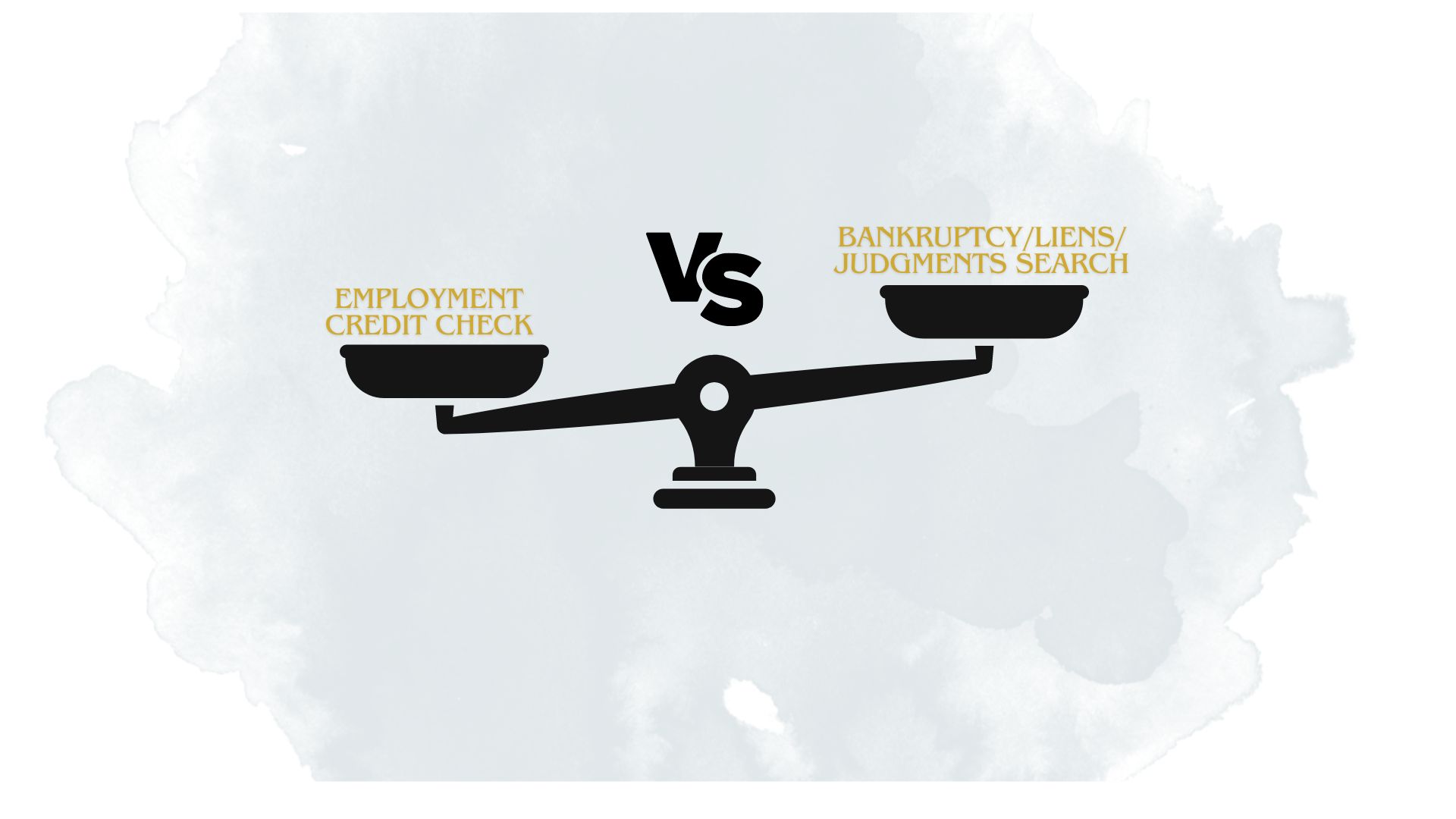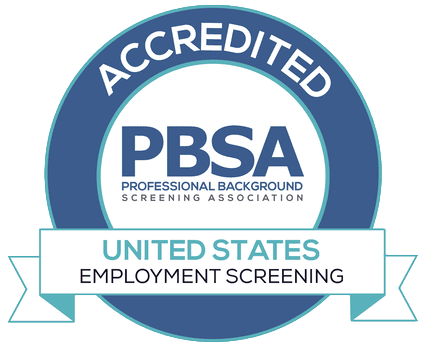In the world of ever changing employment background screening landscapes, businesses strive to find effective and cost effective methods to ensure they hire reliable and financially stable candidates. While employment credit checks have traditionally been a popular choice, recent trends indicate that Bankruptcy/Liens and Judgments (BLJ) searches offer a superior alternative. Here’s why a BLJ search is a more advantageous and reliable option compared to an employment credit check, especially given the increasing restrictions and limitations surrounding the latter.
Limitations and Restrictions on Employment Credit Checks
Employment credit checks have been widely used by employers to evaluate the financial responsibility of potential hires. However, these checks come with significant drawbacks and legal constraints:
- Regulatory Restrictions: Many jurisdictions have implemented strict regulations on the use of credit checks in hiring decisions. States like California, Connecticut, and Illinois, as well as major cities like New York City and Chicago, have laws limiting or outright banning the use of credit checks for most job applicants. This regulatory landscape makes it increasingly difficult for employers to utilize credit checks without risking legal repercussions.
- Relevance and Fairness: Critics argue that a person’s credit history is not necessarily indicative of their job performance. Factors such as medical bills, divorce, or student loans can negatively impact credit scores without reflecting a candidate’s professional capabilities. This raises concerns about fairness and relevance, leading to potential discrimination lawsuits and ethical issues.
- Privacy Concerns: Employment credit checks delve into personal financial information, which many applicants consider intrusive. This invasion of privacy can damage the employer’s reputation and deter highly qualified candidates who might view such checks as overly invasive.
- Limited Scope: Credit reports provide a broad overview of an individual’s financial situation but lack detailed insights into specific financial behaviors that might be more relevant to employers, such as a history of financial mismanagement or fraudulent activities.
- Crisis: On the heels of a worldwide pandemic, judging a candidate on criteria that could have been adversely affected by the Covid-19 pandemic doesn’t seem logical. There were families across our country having to decide between food on the table, or paying the credit card bill. Illness and divorce can also wreak havoc on not on your life, but your credit report! Not to mention the death of a spouse or partner! Just a few of the many things to consider.
Advantages of Bankruptcy/Liens and Judgments (BLJ) Search
A Bankruptcy/Liens and Judgments search offers a more targeted and effective approach to understanding a candidate’s financial background without the pitfalls associated with credit checks. Here are some key advantages:
- Specificity and Relevance: BLJ searches focus on critical financial red flags like bankruptcy filings, tax liens, and court judgments. These elements provide a more precise indicator of serious financial distress or legal issues that could impact job performance, particularly in roles that involve financial responsibility or access to sensitive financial information.
- Regulatory Compliance: Unlike credit checks, BLJ searches are generally not subject to the same stringent regulations. This makes them a legally safer option for employers, reducing the risk of non-compliance and associated penalties. No onsite credit bureau inspections are required to access BLJ searches!
- Reduced Privacy Concerns: By narrowing the focus to significant financial events, BLJ searches respect the privacy of candidates more than comprehensive credit checks. This balance of due diligence and privacy can enhance the employer’s image and attract a broader pool of applicants. You aren’t seeing things that are not relevant to employment (like where they hold a credit card, or other things that are frankly not your business).
- Risk Mitigation: Employers can better assess the risk of hiring individuals with a history of severe financial issues. For positions involving financial management, handling cash, or access to sensitive financial data, knowing about past bankruptcies or judgments is crucial in evaluating a candidate’s suitability.
- Holistic View of Financial Responsibility: While credit checks might penalize individuals for minor financial missteps, BLJ searches highlight major financial challenges. This approach allows employers to distinguish between candidates facing temporary financial difficulties and those with a pattern of significant financial mismanagement.
Conclusion
As employers navigate the complexities of background checks, shifting from traditional employment credit checks to Bankruptcy/Liens and Judgments searches can provide a more focused, legally compliant, and fair method of assessing candidate financial responsibility. By prioritizing relevant financial information and respecting privacy concerns, BLJ searches offer a balanced approach that benefits both employers and potential hires. In an era where regulatory and ethical considerations are paramount, BLJ searches stand out as a smarter, more effective tool for informed hiring decisions.
Want to learn more about how this search option can benefit you? Send us an email for more information! sales@applicationverification.com





